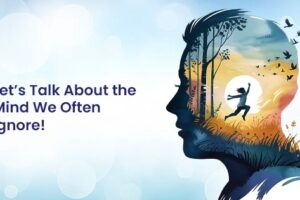
The Rise of Generative AI: How it’s Changing Content Creation
Generative AI is transforming the landscape of content creation in various sectors, fundamentally altering the methods by which businesses, artists, and individuals generate text, images, music, and videos. The emergence of sophisticated AI models such as ChatGPT, DALL-E, and MidJourney has made content generation quicker, more efficient, and significantly scalable.
How Generative AI is Transforming Content Creation
One major benefit of generative AI is its capacity for automation. Tools run by AI have the ability to produce high-quality blog posts, marketing copy, and social media posts swiftly, hence saving time and labor for manual writing. Journalists make use of AI to write stories and carry out data analysis, while companies utilize it to provide better customer experiences through AI-composed emails and chatbots.
In the field of creativity, artificial intelligence is transforming the areas of design and multimedia production. Graphic artists and designers are applying AI to create compelling images, whereas video editors use AI-based tools for designing scenes, voiceovers, and special effects. The music industry is also welcoming AI-driven compositions, enabling artists to try out new sounds and trends.
Challenges and Ethical Considerations
Generative AI, as wonderful as it is, comes with numerous challenges. Spreading massive misinformation and inborn biases of AI systems is one such significant issue because these models will at times produce information that is not merely misinformative but also biased. Secondly, issues related to content ownership and copyright make things difficult, raising legal and ethical controversies regarding works created by AI. Moreover, the growing issue of differentiating between content produced by human beings and AI-generated content undermines the credibility and integrity of information.
The Future of Content Creation with AI
Generative AI cannot be treated as a substitute for human ingenuity but as an incentive to creativity. Used responsibly, it improves productivity, boosts creativity, and opens up new avenues. With advancing AI technology, it would be necessary to see that an equilibrium between automation, ethics, and human judgment is maintained so that an era is ushered in where human creativity and AI are complementary forces.
By:
Dr.S.Balakrishnan,
Professor and Head,
Department of CSE,
AVIT



